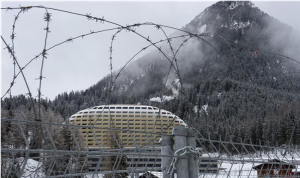
So the annual meeting in Davos is currently taking place. Those of us who are peering through the barbed wire trying to understand and pick up on current thinking by many of our global leaders are scratching our heads, wondering
We hope we can deepen our understanding of these trends, wanting Global leaders to turn their talking into real action and also be ready with applicable supporting solutions or at least readying ourselves for these possible changes. Our leaders do need help.
Listening and watching you do question who is actually tuned-in to the current trends or not. Oh yes, Davos is back full of conflicting signals and potential promises.
PwC have produced their annual global CEO survey (download here) and lead with this as the suggested conclusion from interviewing 1,344 CEO’s across 68 countries:
“The global economic recovery continues to be fragile, but with immediate pressures easing. CEO’s are feeling more optimistic and gradually switching from survival mode to growth mode.
As the latest PwC Annual Global CEO Survey shows, the changes they’re making within their organisations now have less to do with sheltering from economic headwinds and more to do with preparing for the future”
So how are CEO’s responding?
“They feel there are more seismic shifts that loom on the horizon. CEO’s told PwC that three global trends – technological advances, demographic changes and shifts in economic power – would have a huge impact on their businesses over the next five years. And the interplay between them will be as significant as the trends themselves”
PwC view is organisations must overcome three particular challenges in their race to become fit for the future. They’ll need to harness technology to create value in totally new ways; capitalise on demographic shifts to develop tomorrow’s workforce; and, just as important, understand how to serve increasingly demanding consumers across the new economic landscape.
They go on and suggest “Quite simply, everything is now in flux – from where and how people live and work, to the wider social and political contexts in which companies interact with their stakeholders. These developments will create many new opportunities for innovation and growth. But to seize these opportunities, companies must be ready to radically reassess how they function.
In this new world, the very purpose of business– not just its practices – will come into question”
Yet this next part of the summary is the real challenge and key:
PwC suggest:“CEO’s recognise that as these trends unfold, the demands placed on them will increase exponentially.
1) They will have to encourage innovation that’s both radical and methodical;
2) Connect with employees and consumers who look, think or act like them;
3) Experiment with new operating models while preserving existing efficiencies; and
4) Deliver value without compromising on quality or integrity.
In short, CEO’s will have to become hybrid leaders who are comfortable straddling two worlds – drawing on the best of the old while operating at the frontiers of the new.”
So how quickly will they react?
There is a short video introduction to this report from Dennis. M. Nalley, the Chairman of PwC Global Dennis. M. Nalley along with a recorded discussion from Davos. He poised the critical question of it is not any more “ if the CEO should act” but “how quickly they will react” to act upon these trends and challenges.
I sense the leaders of most of our business organizations are still caught, trapped and imprisoned in their existing business models. They are still behind their own self-imposed “barbed wire” still struggling to make these moves into new operating models and placing the increased emphasis on innovation.
Let’s hope we gain some ‘traction’ in the coming year. Davos is back, the same “talking shop of lost promise” or somewhere where leaders regain courage to “act decisively”. Time will tell.